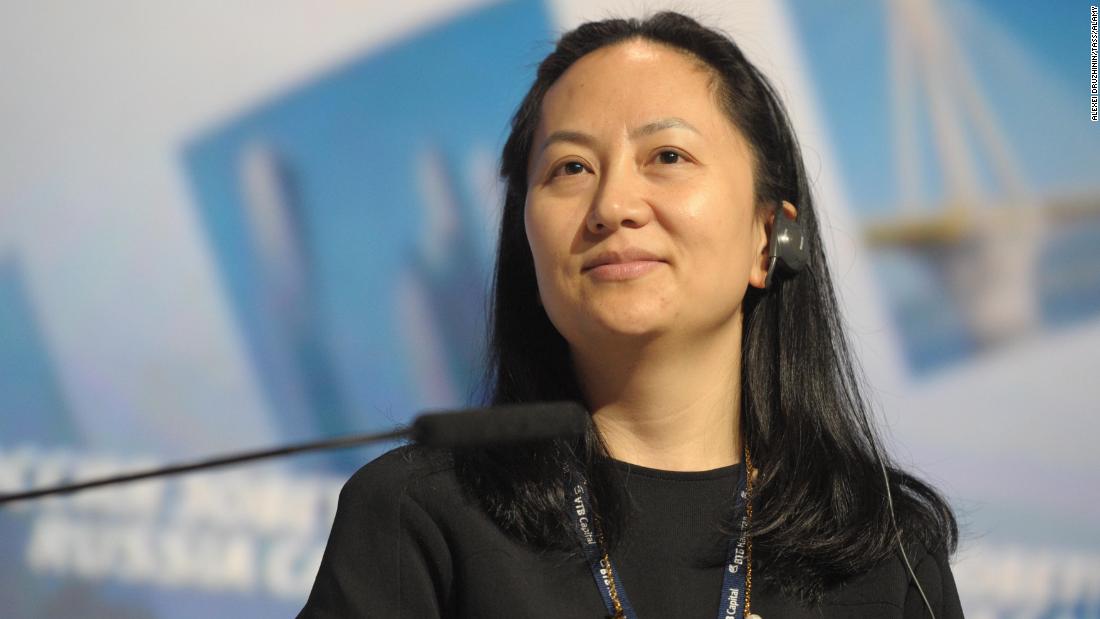
Meng Wanzhou, who was arrested in Vancouver and faces extradition to the United States, is believed to have helped Huawei circumvent US sanctions by telling financial institutions that a Huawei subsidiary was a separate company, prosecutors said at a hearing Friday to determine whether Meng should be released on bail.
Her lawyer said that she has ties to Canada and is not a flight risk. The judge, after hearing arguments from Meng's lawyer and prosecutors, did not rule on bail. The hearing will resume Monday at 1 p.m. ET.
Previously, details surrounding why Meng, 46, had been detained were limited due to a press ban. A judge had accepted Meng's request to bar both police and prosecutors from releasing information about the case prior to the hearing. The ban was lifted on Friday.
A judge in the US District Court for the Eastern District of New York issued a warrant for Meng's arrest on August 22, it was revealed at the hearing Friday. She was arrested on December 1.
Earlier this week, Huawei said Meng was detained by Canadian authorities on behalf of the United States when she was transferring flights in Canada.
In a statement after Friday's hearing in Canada, Huawei said: "We will continue to follow the bail hearing on Monday. We have every confidence that the Canadian and US legal systems will reach the right conclusion."
The company has said it was "not aware of any wrongdoing by Ms. Meng" and that it "complies with all applicable laws and regulations where it operates."
In addition to her role as CFO, Meng serves as deputy chairwoman of Huawei's board. She's the daughter of Huawei's founder, Ren Zhengfei.
Meng's attorney said she would not breach a court order because doing so would embarrass her personally, and would also humiliate her father, Huawei and China itself. He added that the case against Meng had not been fully laid out, even though the US had signed off on her arrest warrant months ago.
"This isn't some last minute thing," he said.
Meng did everything she could to be transparent with Huawei's banking partners, and the company always worked to ensure its compliance with sanctions law, her lawyer continued.
Huawei is one of the world's biggest makers of smartphones and networking equipment and one of China's best-known companies. It is central to the country's ambitions to become a tech superpower.
But concerns that Huawei devices pose national security risks have hurt its ability to grow abroad.
The company has been repeatedly singled out by officials in the United States. US intelligence agencies have said American citizens shouldn't use Huawei phones, and US government agencies are banned from buying the company's equipment.
Huawei is a "bad actor," White House trade adviser Peter Navarro told CNN on Friday.
Navarro admitted that is was "unusual" that Meng's arrest came just as US President Donald Trump and Chinese President Xi Jinping reached a trade truce in Argentina, but said the government's actions are "legitimate."
"Let's look at what the indictment says and let the [Justice Department] do its thing," he said.
No comments:
Post a Comment